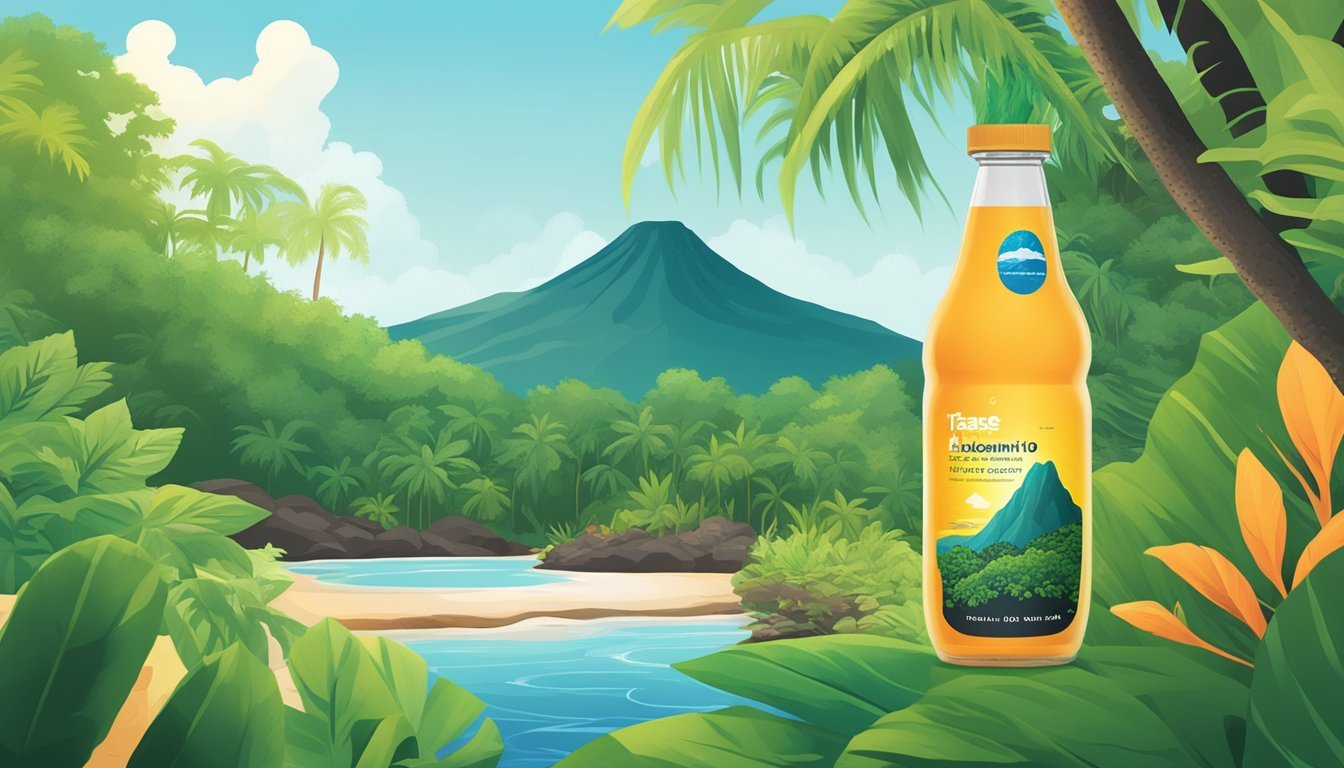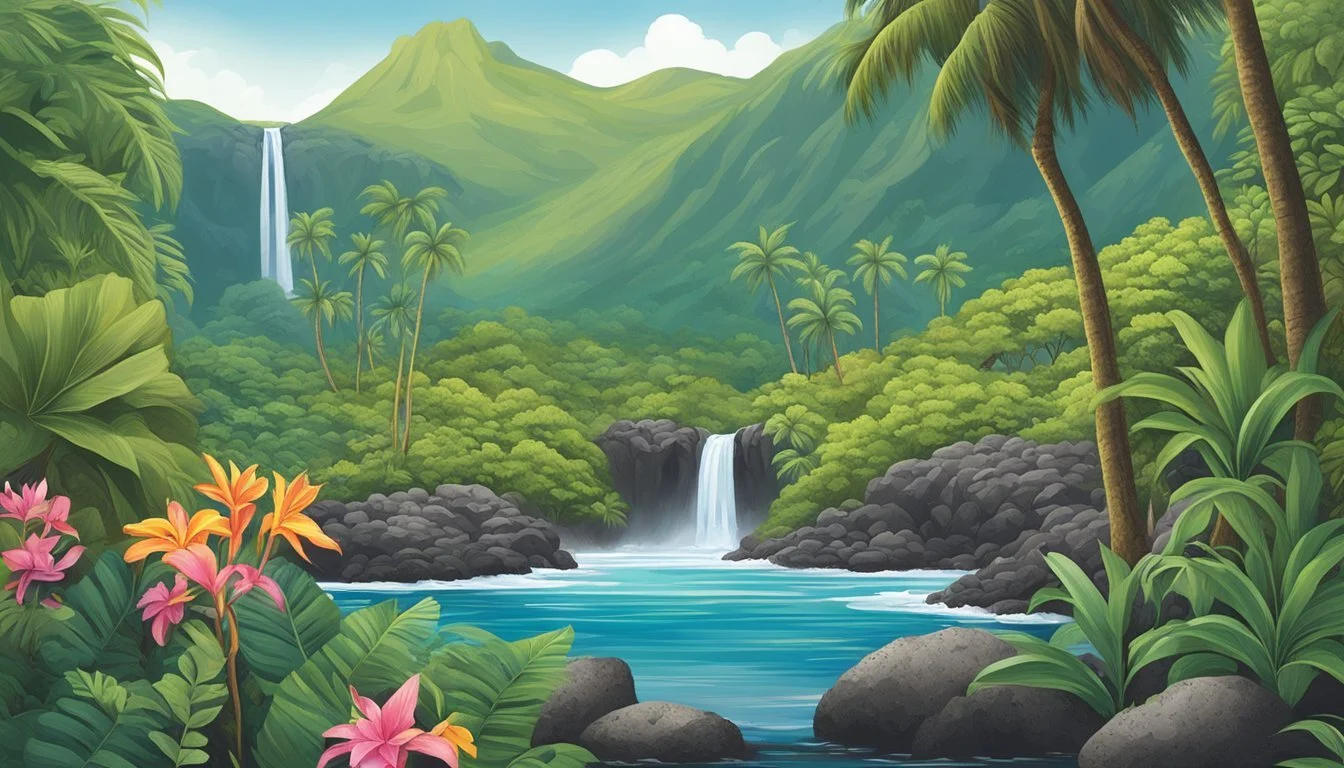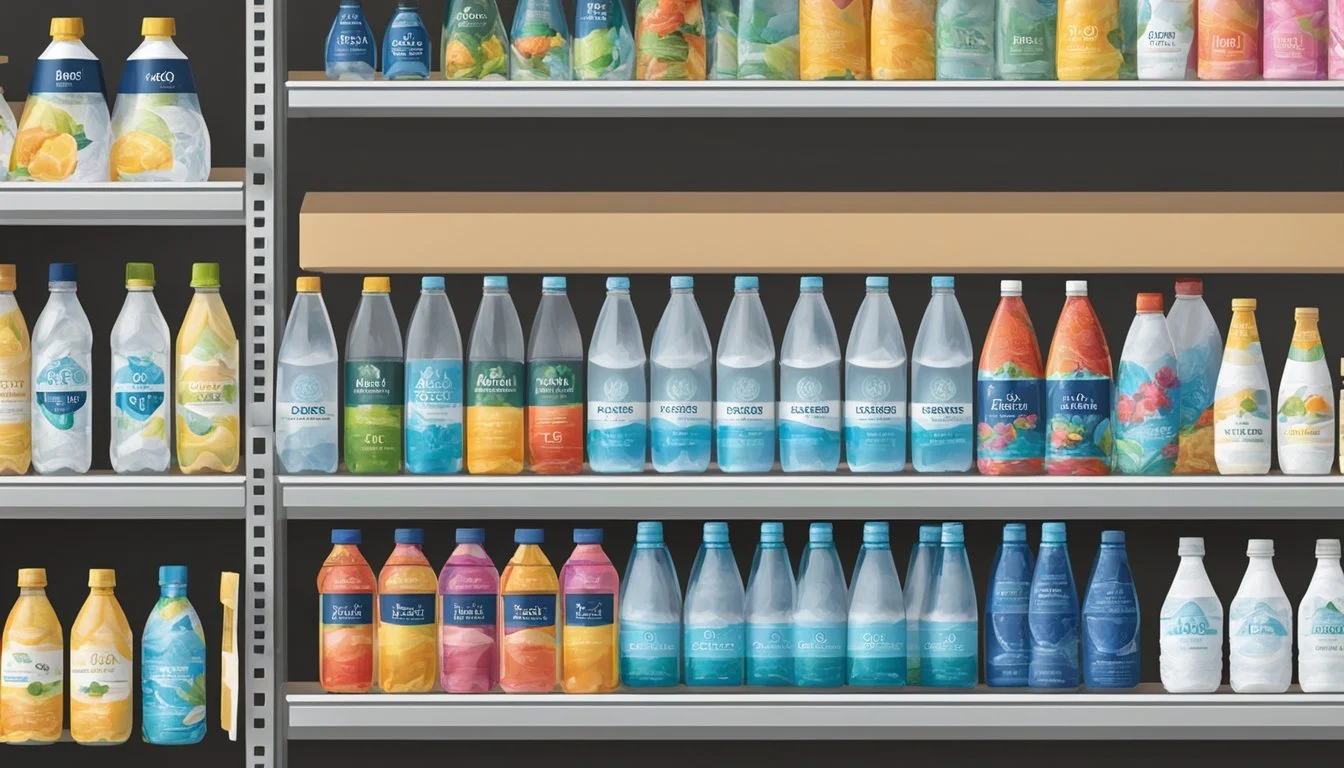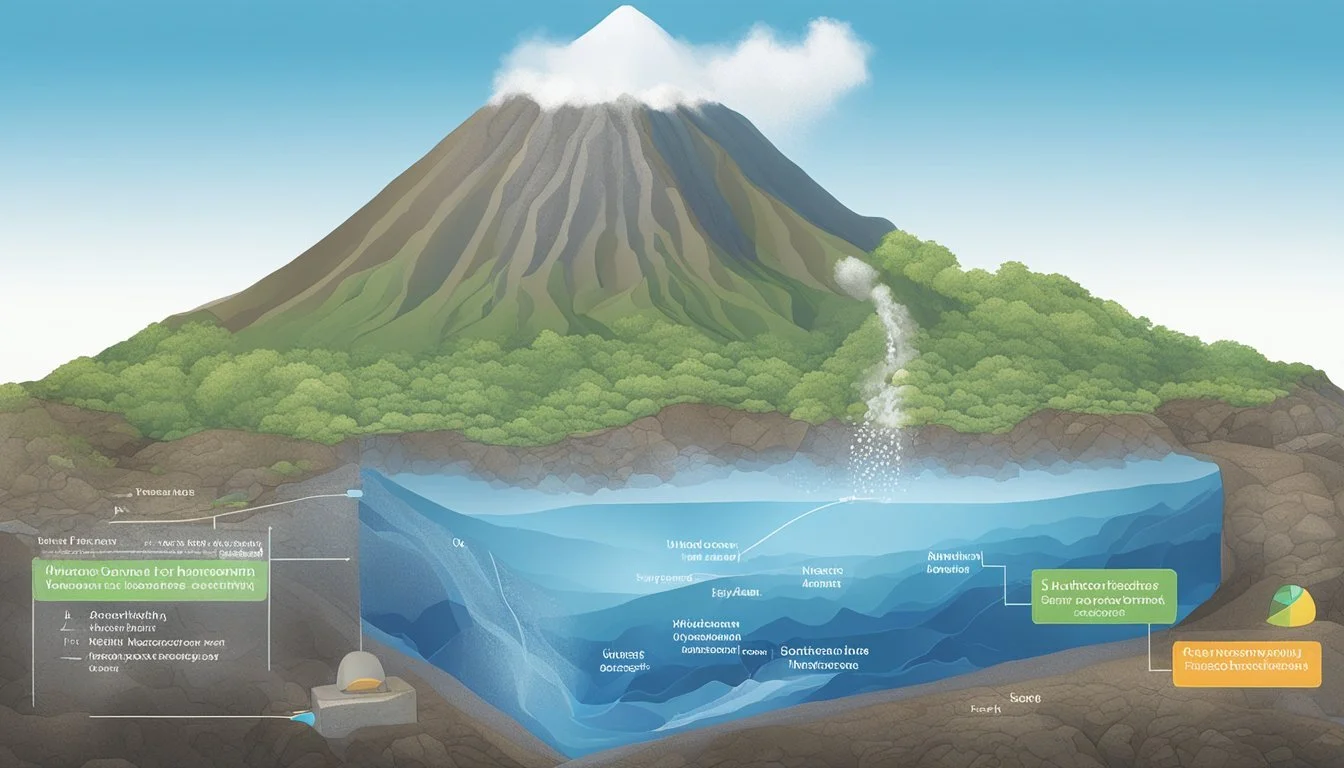Ethos vs. Hawai’i Volcanic
Comparing the Best Bottled Water Brands
When it comes to bottled water, consumers often wonder which brand offers the best combination of quality, taste, and sustainability. In this comparison, Ethos and Hawai’i Volcanic come under scrutiny. Ethos is known not only for its clean water but also for its charitable contributions to clean water initiatives globally. On the other hand, Hawai’i Volcanic touts itself as the first U.S. bottled water to be certified Carbon Neutral, demonstrating a strong commitment to environmental sustainability.
Ethos Bottled Water shines in its charitable work, making it a top choice for socially conscious consumers. Meanwhile, Hawai’i Volcanic impresses with its high standards in eco-friendly practices, putting the planet over profits and donating a substantial 5% of revenue to nonprofits. Both brands prioritize giving back, yet they cater to slightly different priorities when it comes to consumer values.
Both Ethos and Hawai’i Volcanic offer more than just hydration; they represent larger commitments to social and environmental causes. This comparison aims to explore whether the charitable contributions of Ethos or the carbon-neutral promise of Hawai’i Volcanic provide a better value for consumers seeking ethically sourced bottled water.
Analyzing Water Sources
Ethos and Hawai’i Volcanic sources are crucial to their distinctions. Ethos utilizes multiple springs, while Hawai’i Volcanic leverages the natural filtration provided by volcanic rock.
Ethos Water Source
Ethos sources its water from various springs. These springs are situated in regions known for their purity.
Spring water is collected from aquifers where water flows naturally to the earth’s surface. This method helps maintain the natural minerals present in the water, often resulting in a fresh taste. Ethos emphasizes purity by ensuring the source springs are located away from potential contaminants.
Additionally, Ethos directs part of its proceeds towards charitable initiatives, aiming to provide clean water access globally.
Hawai’i Volcanic Water Source
Hawai’i Volcanic sources its water from rain and aquifers around the Mauna Loa region. This water percolates through porous volcanic rock, acting as a natural filtration system.
The water collects minerals and elements from volcanic rock, affecting its taste and properties. Hawai’i Volcanic markets this process, emphasizing the unique characteristics imparted by the volcanic filtration.
They also conduct regular Total Dissolved Solids (TDS) and pH tests to ensure quality. Bottled and marketed as both still and sparkling, this water source is highlighted for its unique geological journey.
Water Composition and Quality
Water composition and quality play a crucial role in determining the health benefits and overall suitability of bottled water. The key areas to compare between Ethos and Hawai’i Volcanic include mineral content, pH levels, and purity.
Mineral Content and Health Benefits
Minerals are essential for the body’s functions. Ethos water is known for containing a good balance of calcium and magnesium. Calcium supports bone health, while magnesium aids muscle and nerve functions.
Hawai’i Volcanic, sourced from volcanic rock, has a unique mineral profile. It is rich in silica, beneficial for hair, skin, and nails, and contains potassium, essential for heart health. This water may also include trace amounts of fluoride, which is known to support dental health.
A comparison of the mineral content:
Mineral Ethos Hawai’i Volcanic Calcium Moderate Low Magnesium Good Moderate Potassium Low High Silica Absent High Fluoride Low Trace
PH Levels and Alkalinity
pH levels affect water's alkalinity and ionization. Ethos tends to maintain a neutral pH around 7. This neutral balance is good for general consumption as it does not alter the body's natural balance.
Hawai’i Volcanic is marketed as alkaline water with a pH typically above 8.0. This higher alkalinity is believed to help neutralize acid in the bloodstream, which can benefit overall health, particularly for those with acid-reflux issues.
Table of pH levels:
Water Brand pH Level Ethos ~7.0 Hawai’i Volcanic 8.0 - 8.8
Purity and Presence of Contaminants
Purity in bottled water is essential to avoid health risks. Ethos water goes through a rigorous purification process to remove contaminants and ensure safety. This process includes microfiltration and UV light treatment to eliminate any potential impurities.
Hawai’i Volcanic benefits from natural filtration through volcanic rock, resulting in a clean, fresh taste. The water is claimed to be free from BPA and is packaged in 100% RPET bottles, which is environmentally friendly. Regular testing ensures it remains free from harmful contaminants like lead and chlorine.
Comparison of purity aspects:
Aspect Ethos Hawai’i Volcanic Contaminant Removal Microfiltration, UV light Natural filtration Bottle Material Plastic 100% RPET BPA-Free Varies Yes
Production and Purification Processes
This section delves into the production and purification processes of Ethos Water and Hawai’i Volcanic, highlighting their unique methods and the importance of providing clean drinking water.
Ethos Water Filtration
Ethos Water uses advanced purification methods to ensure clean drinking water. Central to their process is reverse osmosis, which removes impurities and contaminants. This method forces water through a semipermeable membrane, effectively filtering out particles as small as 0.0001 microns.
In addition to reverse osmosis, Ethos Water employs carbon filtration to remove chlorine and organic compounds. This step enhances the taste and odor quality of the water. For further sanitation, the water undergoes ultraviolet (UV) light irradiation, which eliminates bacteria and viruses.
Ethos Water is also committed to sustainability. Their water is sourced from natural springs and carefully managed aquifers to ensure environmental protection. Each step of their purification process is designed to maintain the natural quality of the water while ensuring its safety for consumption.
Hawai’i Volcanic Purification
Hawai’i Volcanic water is renowned for its unique purification process involving volcanic rock filtration. This method naturally infuses the water with minerals and electrolytes while filtering out impurities. The water originates from the slopes of the Mauna Loa volcano and goes through a natural percolation process.
As the water travels through the layers of volcanic rock, it becomes naturally alkaline with a pH range of 7.6 to 8.5. This natural filtration process does not involve chemicals, electrolysis, or ionization. The result is a high-quality, mineral-rich water that is both pure and refreshing.
Hydration experts emphasize that the volcanic spring source contributes to the water's purity. The rapid percolation through lava rock ensures the water remains youthful and uncontaminated. By bottling a fraction of the water that surfaces, Hawai’i Volcanic maintains the sustainability of their natural source.
Taste Profile and Electrolytes
Ethos Water features a clean and refreshing taste, aimed at providing a smooth drinking experience. This quality makes it versatile for various settings, from casual hydration to fine dining.
In terms of electrolytes, Ethos Water doesn't specify a proprietary blend but is slightly enriched to help replenish salts lost through sweat.
Hawai’i Volcanic Water, drawing its water from volcanic sources, offers a naturally crisp taste. This distinct flavor is due to the unique minerals absorbed during its formation. Many users report a light and invigorating sensation upon drinking.
The electrolyte content in Hawai’i Volcanic Water includes sodium, potassium, calcium, and magnesium—essential for maintaining hydration and muscle function.
Brand Electrolyte Content Taste Characteristics Ethos Slightly enriched, unspecified blend Clean, smooth Hawai’i Volcanic Water Natural minerals (sodium, potassium, etc.) Crisp, light, unique
Both brands emphasize purity and hydration but cater to different preferences in taste and mineral content.
Health Considerations and Hydration
Ethos and Hawai’i Volcanic bottled waters offer unique benefits in terms of hydration and health. Consumers often seek specific characteristics like alkaline pH levels and electrolyte content when choosing between these options.
Alkaline Water and Health
Alkaline water, characterized by a higher pH level, is often marketed for its potential health benefits. Hawai’i Volcanic water is naturally alkaline due to its volcanic filtration process, boasting a pH level between 7.6 and 8.2. It's believed to neutralize acid in the bloodstream, enhancing hydration efficiency and potentially benefiting those with acid reflux issues.
Ethos water, while not specifically marketed for its alkalinity, focuses on purity and contains essential minerals. Both options provide benefits, but naturally alkaline water like Hawai’i Volcanic may appeal more to those seeking specific pH-related health advantages.
Hydration Efficiency
Hydration efficiency refers to how well the body absorbs and retains water. Electrolytes, such as sodium, potassium, and magnesium, play a crucial role in this process. Hawai’i Volcanic water contains natural minerals and electrolytes that can enhance hydration by promoting better water absorption.
Ethos water also includes essential minerals but in differing proportions. The effectiveness of hydration can depend on the electrolyte composition, making Hawai’i Volcanic a potentially superior option for maintaining optimal hydration levels during physical activity. Consumers should consider their individual hydration needs when choosing between these bottled waters.
Environmental Impact and Sustainability
Both Ethos and Hawai’i Volcanic position themselves as environmentally conscious brands, focusing on eco-friendly packaging and initiatives that benefit the community. Evaluating their impact on sustainability involves examining packaging choices and carbon footprints along with their contributions to local communities.
Packaging and Carbon Footprint
Ethos uses recyclable bottles in their packaging. Their approach to sustainability also includes reducing carbon emissions associated with the production and transportation of their products.
Hawai’i Volcanic emphasizes its minimal environmental impact by bottling less than 0.003% of the water yielded at the slopes that feed their brand. They also use sustainable materials, contributing to a lower carbon footprint.
Consideration of carbon neutrality and eco-friendly practices is critical when deciding between these two brands. Ethos highlights its commitment through recyclable packaging, while Hawai’i Volcanic focuses on conserving natural resources and maintaining a small footprint.
Community and Sustainability Practices
Ethos supports clean water initiatives, donating a portion of its profits to various charitable causes. This means purchasing an Ethos bottle not only contributes to hydration but also helps communities lacking access to clean water. Their efforts can make a significant difference in improving global water availability.
Hawai’i Volcanic is rooted in protecting and conserving the environment and its resources. Their sustainability practices extend beyond packaging, emphasizing the preservation of natural resources. This is especially relevant in the context of a volcanic region where water sources must be diligently safeguarded.
Both brands have strong community-focused initiatives, though Ethos emphasizes direct charitable contributions. Hawai’i Volcanic integrates environmental stewardship into every aspect of its production process, offering an equally compelling case for sustainability-conscious consumers.
Market Position and Consumer Preferences
Ethos and Hawai’i Volcanic both have distinct market positions, and consumer preferences play a significant role in their popularity. Understanding these dynamics can help determine which brand might be the better choice for different types of customers.
Consumer Reviews and Preferences
Ethos is associated with its charitable contributions to clean water initiatives, resonating with socially conscious consumers. Customers appreciate the brand's mission, often leading to positive reviews.
Hawai’i Volcanic, known for its premium taste and natural filtration process, attracts consumers looking for high-quality hydration. The volcanic filtration process is a unique selling point that garners attention and preference among premium bottled water buyers.
Both brands receive favorable reviews, but their target audiences differ. Ethos appeals to socially responsible buyers, while Hawai’i Volcanic attracts those prioritizing quality and natural filtration.
Comparing to Other Water Brands
Ethos and Hawai’i Volcanic face competition from various other bottled water brands. Ethos' charitable initiatives set it apart from brands like Dasani and Aquafina, which focus more on affordability and widespread availability.
Hawai’i Volcanic competes with other premium brands like Fiji Water, Evian, and Voss. These brands emphasize mineral content, purity, and natural sourcing. Fiji Water's unique aquifer source and Evian's Alps filtration process are comparable to Hawai’i Volcanic's volcanic filtration method.
For those valuing sustainability, Waiakea and Acqua Panna are strong contenders. Icelandic Glacial and Smartwater's distinct marketing and unique sourcing also present competition.
Ethos and Hawai’i Volcanic each have strong positions, but their success depends on how well they meet consumer preferences in the crowded bottled water market.
Cost Analysis and Accessibility
Comparing Ethos and Hawai’i Volcanic entails looking at price points and the ease with which consumers can access these products.
Price Comparisons
Ethos, a brand by Starbucks, is generally priced higher than average bottled water. This premium is partly due to its charitable contributions to clean water initiatives. For a 700ml bottle, Ethos costs around $2 to $3, reflecting the added social value.
In contrast, Hawai’i Volcanic is competitively priced within the premium bottled water segment. A 500ml bottle typically costs approximately $1.50 to $2.50. The pricing accounts for its natural alkaline properties and sustainable packaging. By being slightly lower or comparable in price to Ethos, Hawai’i Volcanic appeals to environmentally conscious consumers.
Availability and Distribution
Ethos benefits from Starbucks' extensive global network. Available in Starbucks locations worldwide, Ethos harnesses the coffee giant's distribution system, ensuring broad accessibility. Nestlé and Coca-Cola's distribution capabilities further enhance its availability.
Hawai’i Volcanic also boasts wide distribution, albeit slightly more limited. It is found in select supermarkets, health food stores, and online retailers like Amazon. Its distribution emphasizes markets with higher demand for natural and sustainable products.
Ethos leverages corporate partnerships for broader reach, while Hawai’i Volcanic primarily targets niche markets with a focus on sustainability. This difference in distribution strategies highlights their unique market positioning.
Regulation and Quality Assurance
Both Ethos and Hawai'i Volcanic adhere to strict regulations to ensure their bottled water meets high standards of quality and safety.
Ethos Water is regulated by both the EPA and the FDA. These agencies establish contaminant limits and require regular testing to ensure compliance. Ethos sources its water from municipal supplies, which undergoes additional purification processes in their labs.
Hawai'i Volcanic, on the other hand, sources its water from a natural volcanic aquifer. This water is filtered through porous volcanic rock, providing a unique mineral composition. The brand claims to adhere to EPA guidelines and conducts regular quality tests in their own labs to ensure the safety and purity of their product.
Key Quality Metrics:
Metric Ethos Water Hawai'i Volcanic Regulation Agencies EPA, FDA EPA Source Municipal supplies Volcanic aquifer Additional Purification Yes No Testing Frequency Regular Regular
Ethos boasts of multi-stage filtration, including reverse osmosis, activated carbon filters, and ozone disinfection. These steps are designed to remove any potential contaminants that might be present in municipal tap water.
Hawai'i Volcanic emphasizes its natural filtration process. The water's contact with volcanic rock is claimed to naturally filter and infuse it with minerals. This process negates the need for additional chemical treatments, offering consumers a more natural product.
Quality assurance for both brands involves rigorous testing. Ethos uses advanced lab equipment to monitor for any impurities. Hawai'i Volcanic, while relying more on natural filtration, still conducts frequent lab analyses to verify the purity and mineral content of its water.
Both brands are committed to providing safe, high-quality water. Their approaches, though differing, both cater to consumer needs for pure and safe drinking water.
More About Ethos
Ethos vs Mountain Valley Spring Water: Which Bottled Water is Better?
Ethos vs Richard's Rainwater: Which Bottled Water is Better?
Ethos vs Whole Foods Italian Still Mineral water: Which Bottled Water is Better?
More About Hawai’i Volcanic
Acqua Pana vs Hawaii Volcanic: Which Bottled Water is Better?
Antipodes vs Hawaii Volcanic: Which Bottled Water is Better?
Aqua Carpatica vs Hawaii Volcanic: Which Bottled Water is Better?
Arrowhead vs Hawaii Volcanic: Which Bottled Water is Better?
Boxed Water vs Hawaii Volcanic: Which Bottled Water is Better?
Castle Rock vs Hawaii Volcanic: Which Bottled Water is Better?
Core Hydration vs Hawaii Volcanic: Which Bottled Water is Better?
Deer Park vs Hawaii Volcanic: Which Bottled Water is Better?
Hawaii Volcanic vs 1907water: Which Bottled Water is Better?
Hawaii Volcanic vs Alkaline88: Which Bottled Water is Better?
Hawaii Volcanic vs Big Chill: Which Bottled Water is Better?
Hawaii Volcanic vs BodyArmor: Which Bottled Water is Better?
Hawaii Volcanic vs Cascade Mountain: Which Bottled Water is Better?
Hawaii Volcanic vs CBD Living: Which Bottled Water is Better?
Hawaii Volcanic vs Crystal Geyser: Which Bottled Water is Better?
Hawaii Volcanic vs Crystal Lake: Which Bottled Water is Better?
Hawaii Volcanic vs Essence pH10: Which Bottled Water is Better?
Hawaii Volcanic vs Kirkland Signature: Which Bottled Water is Better?
Hawaii Volcanic vs Liquid Death: Which Bottled Water is Better?
Hawaii Volcanic vs Open Water: Which Bottled Water is Better?
Hawaii Volcanic vs Proud Source: Which Bottled Water is Better?
Hawaii Volcanic vs Pure Life: Which Bottled Water is Better?
Hawaii Volcanic vs Purely Sedona: Which Bottled Water is Better?
Hawaii Volcanic vs Richard's Rainwater: Which Bottled Water is Better?
Hawaii Volcanic vs Simple Truth: Which Bottled Water is Better?
Hawaii Volcanic vs Talking Rain AQA: Which Bottled Water is Better?
Hawaii Volcanic vs Weird Water: Which Bottled Water is Better?
Hawaii Volcanic vs Whole Foods 365: Which Bottled Water is Better?
Hawaii Volcanic vs Whole Foods Italian Still Mineral water: Which Bottled Water is Better?
Hawaiian Springs vs Hawaii Volcanic: Which Bottled Water is Better?
Ice Mountain vs Hawaii Volcanic: Which Bottled Water is Better?
Icelandic Glacial vs Hawaii Volcanic: Which Bottled Water is Better?
Just Water vs Hawaii Volcanic: Which Bottled Water is Better?
Mountain Valley Spring Water vs Hawaii Volcanic: Which Bottled Water is Better?
Nestle Pure Life vs Hawaii Volcanic: Which Bottled Water is Better?
Poland Spring vs Hawaii Volcanic: Which Bottled Water is Better?
San Pellegrino vs Hawaii Volcanic: Which Bottled Water is Better?
Smartwater vs Hawaii Volcanic: Which Bottled Water is Better?
Solan de Cabras vs Hawaii Volcanic: Which Bottled Water is Better?
Topo Chico vs Hawaii Volcanic: Which Bottled Water is Better?
Zephyrhills vs Hawaii Volcanic: Which Bottled Water is Better?








